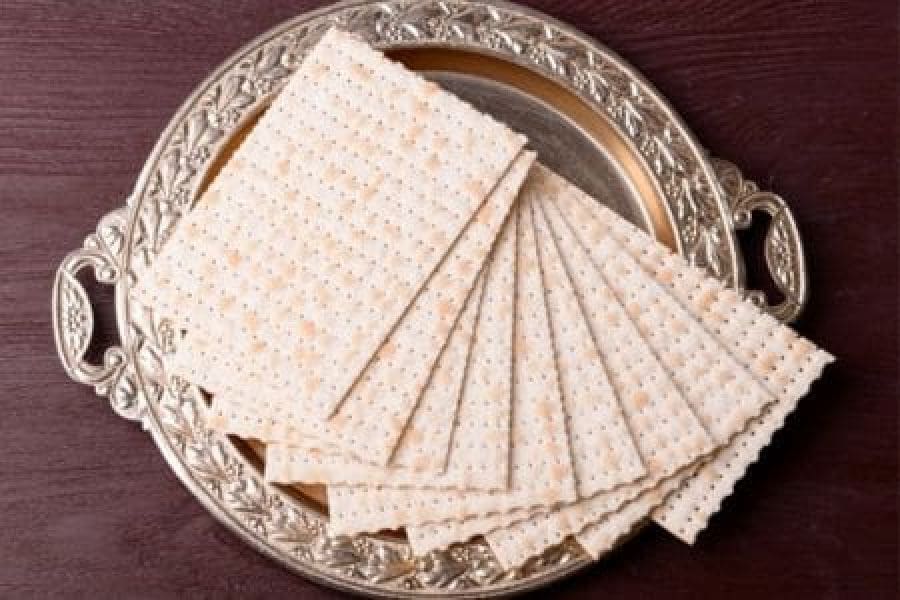
The Feast of Unleavened Bread vs. Passover: What’s the Difference?

Are Passover and the Feast of Unleavened Bread the same thing? Although many think they are, they’re described as two separate Feasts in the Bible. The Feast of Unleavened Bread follows right after Passover, though the two events overlap, as I’ll explain below.
Both Passover and the Feast of Unleavened Bread are meaningful celebrations for Christians as we explore our Hebrew roots and grow in our faith. Our Savior and what he’s done for us can be clearly symbolized through both of these Feasts, and if they’re not yet traditions in your home, I highly recommend you consider adopting them! They give such vivid pictures of who Jesus is and why we need him!
Passover
While often referred to as such, Passover isn’t a week or even a day, but a meal held on the 14th day of the month of Nisan on the Hebrew calendar. This corresponds to a date in March or April on our Gregorian calendar.
Although the original command can’t be kept since it includes the sacrifice of the Passover lamb at the Temple, an annual celebration allows us to remember what God did for His people in Egypt.
The meal for Passover, called a Seder, isn’t merely to nourish those who partake, but to serve as a memorial to what God did for His people in the Exodus from Egypt. It’s to be eaten on the 14th day of the month of Nisan, at twilight. It’s important to note here that days on the Hebrew calendar start at twilight the night before.
The Passover lamb in Egypt foreshadows Jesus, our Passover Lamb, and this is clearly shown during the Seder. Just as the blood of the Passover Lamb rescued the Hebrew people from slavery, it’s the blood of Jesus that saves us from the slavery of our sin as well.
Unleavened Bread
The Feast of Unleavened Bread is to start on the 15th day of Nisan, the same month as Passover, at twilight. This is a 7-day feast, and the first and last days are to be Sabbaths. These Sabbaths differ from the weekly Sabbath (Saturday) and may occur on any day of the week. Which day of the week they’re on changes from year to year, but no matter what day they occur on, the same rules apply as for the weekly Sabbath – rest and keeping the day holy.
The command for this feast says to eat unleavened bread for seven days and to remove all leaven from your homes before the feast begins (this is the period where the Feast of Unleavened Bread overlaps Passover). In our home, we get rid of anything leavened as well as any leavening agents. For the rest of the 7-day period, all meals and snacks don’t contain any leavening agents or leavened products.
The Feast of Unleavened Bread gives those who participate in it such a great picture of the sin in our lives! The Bible often uses “yeast” or “leaven” to signify sin. In the process of cleaning it out of our homes, we realize very quickly how difficult it is to find and remove it all. There are crumbs in the corners of our pantries and even under our refrigerators. In a house like mine, with seven people, is it even possible to get it all?
But this is the part of this feast that points us right to Jesus. When we see how difficult it is to get all the leaven out of our homes, we realize just how difficult it is to get the sin out of our lives. It’s easy to find the obvious loaves of bread in the pantry but you have to really hunt for the Cheerios between the couch cushions (those of you who have toddlers understand. The rest of you stay with me on this). In the same way, it’s easier to get the big, obvious sins out of our lives, but more difficult to get the hidden, seemingly small ones out before they fester.
Even though we can’t get all of the sin out of our lives, we have Jesus to cover them all. Though we should still strive to live in a way that pleases God, if we believe in Jesus as our Savior, he even forgives the sins we’d rather leave in the dark places under the fridge. Even if the “home” of our life is sparkling clean, chances are that there’s some leaven hiding somewhere.
This is why we need Jesus! He’s the only one capable of perfectly cleaning the “homes” of our lives, which allows us to have a relationship with a holy God. What a wonderful picture!
Just like all of the Seven Biblical Feast Days, Passover and Unleavened Bread both point to our Savior in different but clear ways. My family’s faith has grown so much since we included these important days or “Appointed Times” in the Bible. If they aren’t yet traditions in your home, I encourage you to include them, and I’m sure you’ll be glad you did!
Comments (57)
Leave a Reply Cancel reply
Search
Recent Comments
- Denise Kerhlikar on Explaining The Chosen: Season 3, Episode 3: Physician Heal Yourself
- DSS on Wild Olive Branches: The Blessing of Being Grafted In
- Nicolai Marvin on An Introduction to the Hebrew Vowels
- Kathy on How to Find a Hebraic Congregation
- Amy on Explaining The Chosen: Season 1, Episode 3: Jesus Loves the Little Children
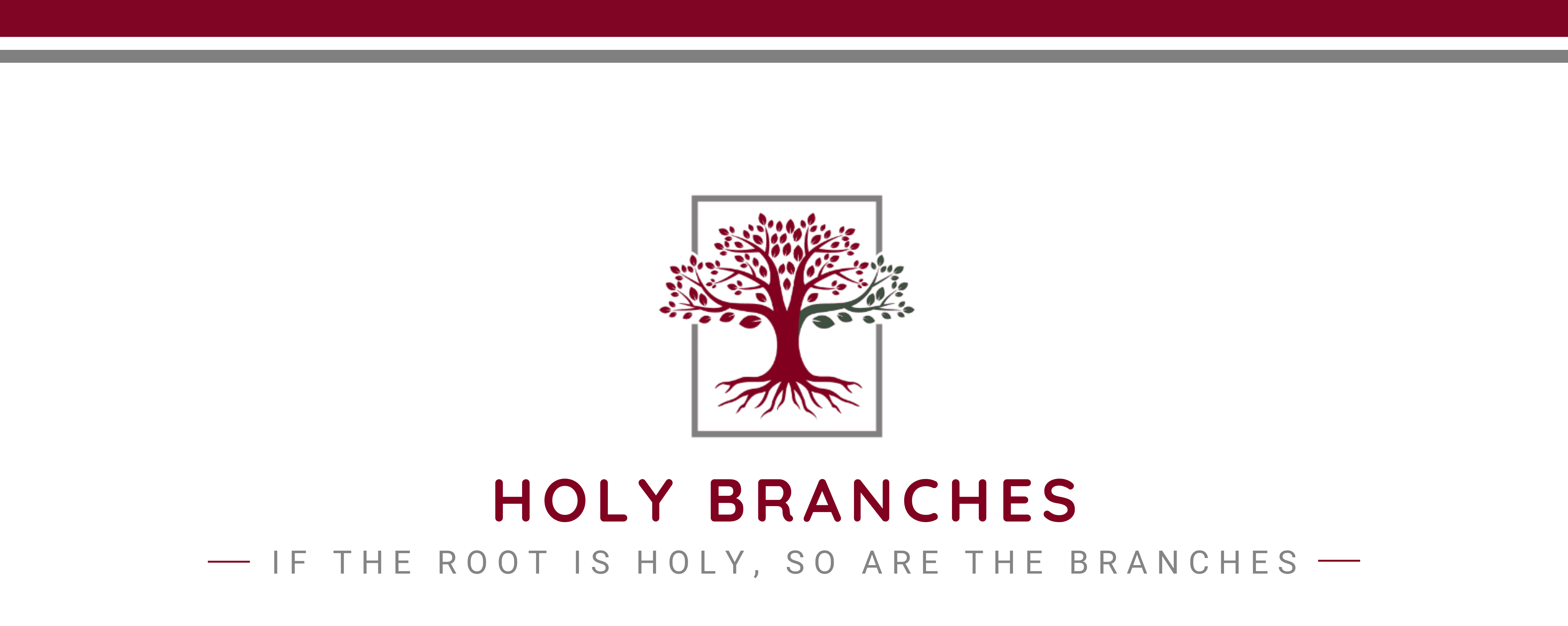
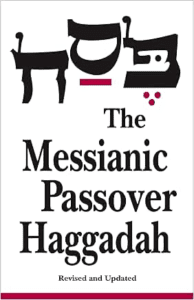
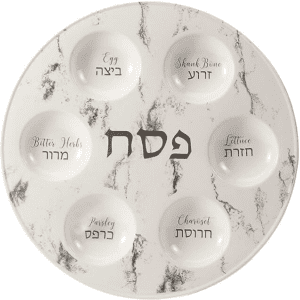
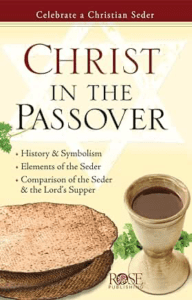
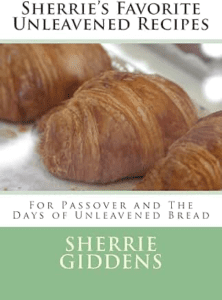
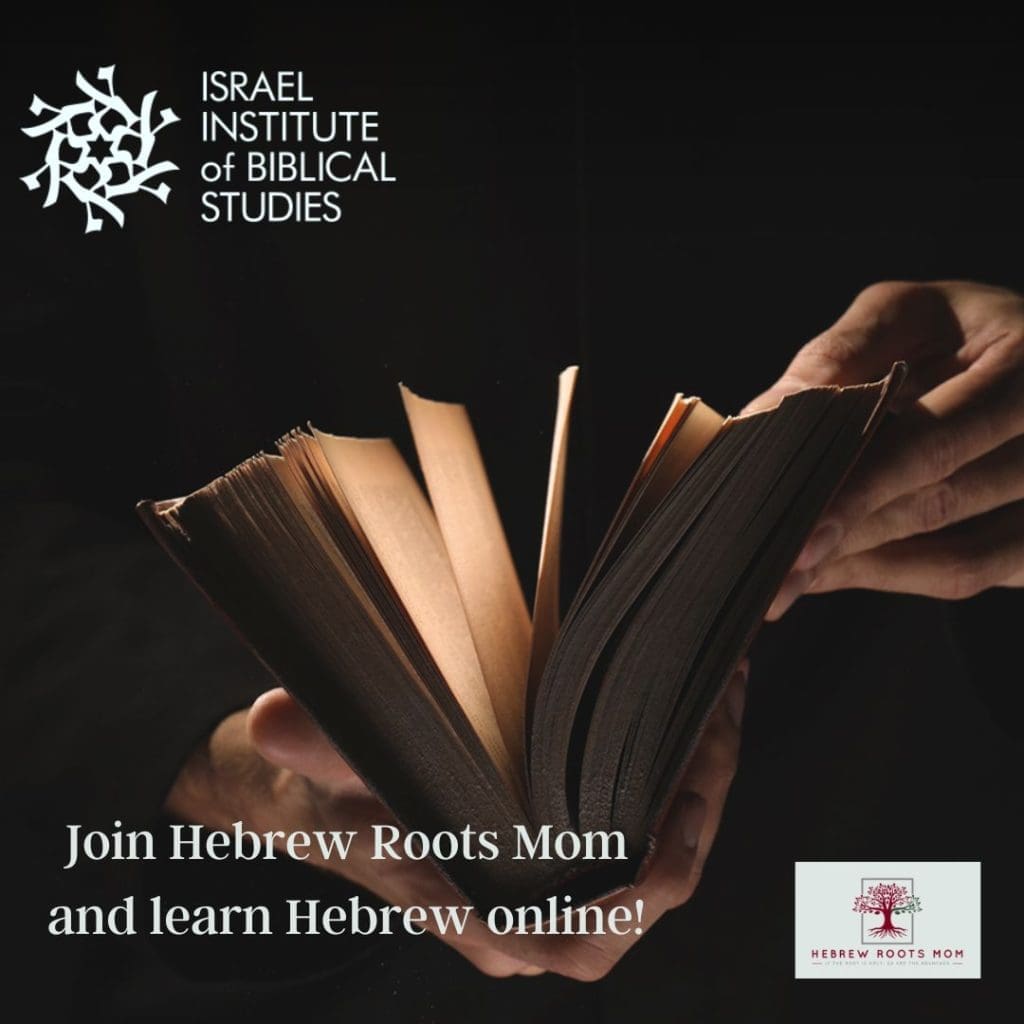
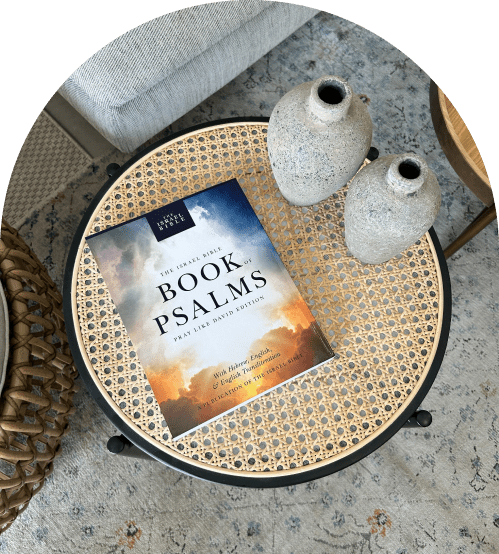
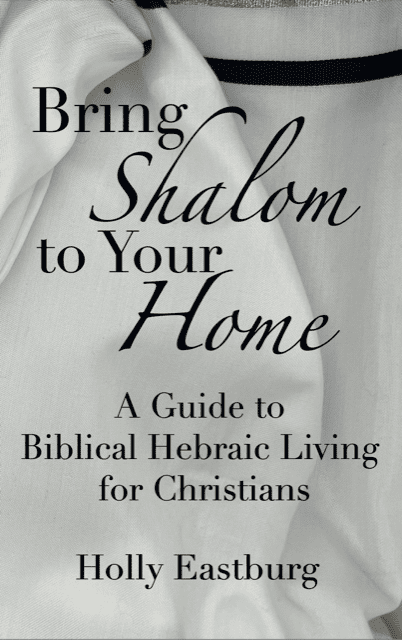
Hi. Nice post. Wondering?? Where does it explainvthe Seder plate in scripture?? Haven’t found it yet. Thanks
HI. Jesus ate the Passover meal on the 14th of Nissan but He did not eat the Passover lamb on the 15th of Nissan. The Passover on the 14th is when Israel begins to eat unleavened bread (Exodus 12:18). 14th is also the day they kill the lamb at twilight going down of the sun (Deu 16:6) This was when Jesus died (which is the next day in our calendar). The Passover is not a holy day and the religious leaders in Jesus time allowed men to be crucified. But the 15th is a holy day as this is a Feast. Their day begins in the evening after sundown of 14th. It is called the Feast of Unleavened Bread or Feast of Passover (John 13:1) The religious leaders will not allow any dead bodies to remain on 15th day. Thus, we find the Romans broke the legs of criminals but did not break Jesus legs as he was already dead (John 19:31). The confusion begins when people assume the day Israel begins to eat unleavened bread (Exo 12:18) is the Feast of Unleavened Bread. This is seen in NLT, NET Bible translation in Luke 22:7 of which Greek scripture does not include Feast. https://biblehub.com/luke/22-7.htm https://biblehub.com/interlinear/luke/22-7.htm
Hi there. I just found your site. I have been in the Hebrew Roots “movement” since 2002, and though I’ve followed the Keto diet for quite a few years, the eating of unleavened bread hasn’t been a huge issue since I’d make my own, of a sort. Now I’m on the Carnivore Diet (which has done wonders for my health). This is NOTHING but meat. I’m obviously not eating leavened bread, but am I disobedient for not having unleavened bread either? I’ve gone years without eating any sort of bread – leavened or otherwise. I just don’t eat anything made with grain flour. I observe all the Feasts and Sabbaths. May Yah bless and keep you!
Hi. I’m a Gentile seeking to know the time line for the last week of Jesus’ earthly life. It’s rather complicated to me so hoping for clarity and simplicity if that’s not too much to ask?? Was the last supper on Wednesday or Thursday? Was Jesus’ arrest on late Thursday pm? I sure appreciate your help!
Hello! There are many opinions about this topic but I have heard some good explanations on the timing of that week. Here’s a good one to start with: https://youtu.be/G4ss3nYhcS0
here is a good timeline explanation for this issue from beyond today website
https://www.ucg.org/good-news/three-days-and-three-nights-the-chronology-of-the-crucifixion-and-resurrection-of-jesus-christ
I mill my own grain and make bread products each week. Am I to throw out my sourdough starter, yeast jars? Or I can I get them out of my house and leave with a friend. Money is so tight and that would be very wasteful. Hope you can guide me on this.
Trust in the Lord. If you obey Him, you should trust that He will provide for you!
Thanks so much for this expose on the feast of unleavened bread and the passover. I am very intrigued to learn that the feast of unleavened bread comes after the passover. Can you explain more as this is very confusing. In Matthew 26:17, it appears as though the exact opposite may be the case. The text says on the 1st day of the feast of unleavened bread, the disciples came asking Jesus where they would like them to prepare for Him to celebrate the passover. This essentially places the passover feast as happening ‘after’ the feast of unleavened bread – even if there is an overlap of the celebrations as you have indicated. Am I missing something?
Hello! There is so much conversation on the timing of Passover in the Gospels. I’ve heard some good explanations for the apparent discrepancy. Here’s a podcast with a good explanation and there are many other great answers out there as well: https://youtu.be/G4ss3nYhcS0
Exodus 12:6 Take care of them until the fourteenth day of the month, when all the members of the community of Israel must slaughter them at twilight.
Exodus 12:18 In the first month you are to eat bread made without yeast, from the evening of the fourteenth day until the evening of the twenty-first day.
Based on the above 2 verses, Passover is held on the 14th day while the Feast of Unleavened Bread is held from the 14th day until the 21st day.
Hence, I think, the 1st day of the Feast of Unleavened Bread is actually the day when they celebrate the Passover.
I have been trying to sort this out and it is complicated. I think there is a discrepancy b/w what Ex says and what Leviticus and Numbers say as Le 23:4-8 and Nu 28:16-25 both clearly state Unleavened Bread starts on the 15th. Sir Colin Humphreys argues the Egyptian calendar adopted by Moses was a sunrise-to-sunrise calendar but during the exile, the Jews were forced to adopt the Babylonian calendar which was sunset-to-sunset. He claims Le and Nu reflect post-exilic practice whereas Ex reflects the original practice. This is controversial.
Thank you for this information. It is very much needed as you can see. I am desperately seeking where I may fellowship with people who think and believe as I do. Believe and trust in the Messiah and feel drawn to the Jewish celebrations for lack of a better way of description. My Church does not celebrate First Fruits, Passover, or any of the Feasts and I want so to be a part of that but as a Christian. I feel lost in a desert. I have prayed about this. Then I saw you. Can you help?
I understand how you feel and I hope you find a community! Here’s a post with resources for that: https://holybranches.com/how-to-find-a-hebraic-congregation/
Interesting how many people think the sabbath is Saturday . That Roman day did not exist originally. GODs colander is in the sky as stated in Genesis chapter 1.
The seventh day after the New Moon day is the Danbath. SonthevRoman day it falls on changes each month .
Thank you for your wonderful work sharing GODs Word????????
Thank you for this post. It is a helpful explanation of the difference between Unleavened Bread and Passover. I would like to ask, though, if you can explain which of the 613 Laws or Commandments we, as Christians, should obey? Many Messianic Jews, Christians who practice aspects of the Jewish faith and some denominations (SDA, for example) emphasize that we are to still to “keep the law” but cannot explain which laws. For instance, as you point out, we obey the 10 Commandments and the laws on marriage. But what about dietary laws? What about laws regarding sacrifices, the Temple and priesthood? What about the laws regarding the treatment of servants, or the structure of our home, clothing, etc. It seems that we, as Christians, are fairly picky as to which laws we obey and which we do not. Don’t get me wrong, I am no legalist and I do not subscribe to the idea that “If you love me, keep my commandments” means that we must adhere to all of the 613 laws. I would just like someone to explain which of those many laws Christians are to keep (especially in light of Acts 15:22-30). This gets particularly problematic when it comes to “keeping the Sabbath.” I fully believe in living godly, upright and self-controlled lives. And I am not trying to stir up trouble, nor looking for an argument. I am simply trying to understand what the Christian view on the Law should be. (Which will stir up an argument whether I wish it to or not :).
May the Lord bless you and keep you and cause His face to shine upon you!
Great question! You’re correct that this question stirs up arguments, though. There are many different explanations of which laws Christians are to obey. The traditional Christian position on obedience is confusing at best. They hold obedience in high regard but cannot provide clear direction on exactly what we’re responsible for obeying. To further confuse the issue, there’s discrepancy among Messianic Jews on whether Gentile Believers must obey all of the laws, some of them, or none.
I have a simple answer to your question but I must clarify that my answer reflects what my family believes, not what Hebraic/Messianic Christians believe as a whole. There are different beliefs among this walk of faith as well.
Here’s my short answer. I believe we’re supposed to obey all of the 613 laws. I don’t believe Jesus’s statements or the rest of the Bible separate God’s commands into categories to be obeyed or not or that any of them have been done away with post-Jesus. This includes the dietary laws, laws regarding servants, etc. I also believe we will be expected to follow the laws regarding the Temple when there’s a standing Temple, like the earthly and heavenly ones mentioned in Revelation.
There are laws we don’t currently have the ability to keep, like the laws regarding the Temple, or that we can’t keep because they’re for certain individuals that we are not, like priests or women. However, I do believe we’re to keep the laws that apply to us to the best of our ability.
I know my saying that brings to mind many Pauline verses that seem to negate us following the Law but I would like to make two points that may simplify that aspect of the discussion.
1. Paul appears to contradict himself on the subject of the Law. Contrast Rom. 7:12 with Gal. 3:10 or Eph. 2:15 with Rom. 3:31, for example. This is because he’s saying something other than what traditional Christianity tells us he is. His seemingly anti-Law statements are taken literally while his pro-Law statements are downplayed or applied to maybe the 10 Commandments or the Great Commission.
2. Jesus was clear on the subject of the Law. Where Paul is confusing, Jesus brings unmistakable clarity (See Matt. 5:17-19, and 19:16-21, John 14:21 and 15:10).
Many Christians point to the decision of the Jerusalem council in their defense of not keeping the Law, but the council decision was a situational decision recorded in the Bible, not a newly stated law. The apostles were navigating the addition of Gentiles to the faith. The laws were a “burden” to them because they were total newbies to it. They would have a lot to learn because they came from an entirely pagan culture. No humans have the authority to change or remove any of God’s Law, including the apostles. My conclusion on the council decision is that they expected that the Gentiles would begin with those 4 requirements, then grow in their adherence to the rest of the Law as they grew in faith through sanctification. For example, the apostles didn’t think it was okay for Gentiles to murder, hate their neighbor, or steal as followers of Jesus, but they didn’t state those requirements in the council decision.
My stance on our obedience isn’t very different from what Christians already believe. The reason the question of the Law becomes an argument is the position traditional Christians hold on the Law. The Law is seen as negative – a competitor of grace and even of Jesus himself. But this is a worldly way to see God’s Law and is in direct conflict with the view of the Law the Bible takes. The Bible has many positive things to say about the Law. Here are just a few.
Ps. 1:2, 112:1, 119:1-2, 35, 128:1; Prov. 8:32, 29:18; Rom. 7:22; Prov. 8:32; Is. 56:2; Matt. 5:6, 10; Luke 11:28; James 1:25; 1 John 5:3; Rev. 22:14
If we view the Law in the way God, Jesus, and the rest of the Bible (even Paul!) viewed it, we will have a love for the Law God gave us. We will trust that He gave it to us for our good and because He knows His Laws make the best families, societies, and people for His Kingdom. If we truly trust that God knows what’s best for us, we will view the Law as an opportunity instead of a hinderance. We will not say we “have to” obey, but that we “get to”!
For further study on the question of the Law, I highly recommend:
Torah Class Bible Studies, Tom Bradford, Romans 6: https://www.torahclass.com/teacher/author/tom-bradford/new-testament-studies/new-testament-romans
The Pauline Paradox by 119 Ministries: https://amzn.to/3FZevft
And this video by Lion and Lamb Ministries: https://youtu.be/xya2TSf_6fU
Shalom!
Thank you for clearly explaining some of the details and differences of the two feasts. You’re doing a good work with your blog. May God Bless You!
I’m glad my website has been helpful and appreciate the encouragement. Shalom!
I recommend you visit ucg.org and request the booklets they offer. You will be blessed greatly.
I love the Feasts, my family and I have been celebrating them for 18 years. I love the Hebrew roots of our faith…they are the ROOTS! Tapping into those roots help us to grow in our faith by leaps and bounds. Funny how the enemy really works to keep God’s children from seeing that truth and depth. Anyway, I keep looking for some good direction, ideas, to make the LAST day of Pesach meaningful. 18 years of celebrating and it always seems to lose something for us. I think it’s incredible that practicing Jews have a feast they call “the feast of the Moshiach.” Incredible! I’d love to have that kind of feast with THE Messiah Yeshuah that is here and now that we celebrate in all the feasts. Any thought, ideas, direction? I pray your celebrations are blessed this week. Chag Pesach Sameach חג פסח שמח!
I really appreciate your article. I understand that Christ is the perfect fulfillment of the law, and that we do well to embrace the full counsel of God’s Word. Thank you again for helping us understand the importance of these traditions and how they point us to Jesus Christ.
Nisan 21 is a solemn fast. This is the last day of the 7 day Feast of Unleavened Bread (Nisan 15 through Nisan 21).. Unleavened bread is to be eaten for the 7 days of Nisan 14 Passover through the first 6 days of the Feast of Unleavened Bread (Nisan 15 through Nisan 20). Most people do not know this. And many people celebrate Passover combined with the the first day of the Feast of Unleavened Bread Nisan 15. Because of this they fail to observe Nisan 21 as a solemn fast, eating unleavened bread as if it was the 7th day of eating unleavened bread (Nisan 15 through Nisan 21).
Thank you. I’ll see you in heaven! I’m grafted into the Hebrew tree, most thankfully. I can’t understand God’s Word unless I respect and pray for His people, His chosen ones, and understand the symbolism He uses Genesis to Revelation. I’ll keep digging at these timeless roots! Maranatha!!!
It’s interesting that you say this, Lori! I prayed one day that God would put on my heart what was on His and He prompted me to start praying for Israel. It was after that that I feel the Scriptures had a clarity they didn’t before and my faith grew by leaps and bounds, as well as that of my whole family! Shalom!
Thank you for this article. A very good read that helped me understand better this feast.
I’m so glad you’ve found it helpful, Tamar. Thanks for reading!
Thank you for your article. I appreciate your hunger to draw closer to the word of God by actively being mindful of Jesus and His great sacrifice for mankind.
I haven’t totally explored or prayed, for that matter, if it’s right or wrong for me to celebrate passover or feast of unleavened bread but the only place in the Bible I can find him telling us to always do in remembrance is taking communion to remember His body and the blood. No criticism at all here. In Acts 2:38 the disciples and followers of Jesus went into an upper room and the Holy Ghost fell upon them and they began to speak in other tongues as the Spirit gave the utterance. The men passing by thought they were drunk. Peter stood up and boldly declared to them that God had made this Jesus who they had crucified, both Lord and Christ.(Acts 2:36)
Acts 2:37 says they were pricked in their hearts and wanted to know how to be saved!
Acts 2:38 Then Peter said unto them repent, be baptized every one of you in the name of Jesus Christ(not the titles father, son or Holy Ghost! Those titles do not have power. There is no other name among heaven or earth whereby we must be saved but by the name of Jesus) and ye shall receive the gift of the Holy Ghost.
These are more important than keeping ceremonies or holidays. These things will save your soul. They may be explained away by many religious leaders but then the Bible says there are many false teachers and and prophets risen up.
If God opens your eyes to these scriptures and you want more then you need to pray and seek a Holy Ghost filled Apostolic church .
To the author who wrote the article. You seem hungry for God and I pray you receive these scriptures and try them and that God takes you all the way! God be with you on your journey closer to Him.
Thank you for your comment, Christina. If I’m understanding you correctly, you’re expressing concern that I’m elevating observing the Feasts and Festivals above receiving the Holy Spirit or Jesus as our Savior. I’ll assure you that I do not believe that or profess to. I fully agree with you that these things are more important than keeping the Feasts! We can receive salvation through none other than Jesus, not by observing Passover or any other holiday.
Thank You so much for this. It is brief and informative.
I would like to know what is the purpose/significance of Leavent? And Why Jesus against the Leavent of the Pharisees?
Once again Thank You Mam.
I’m so glad you found it helpful! Leaven represents sin in Scripture and the leaven of the Pharisees is the tradition & laws of man being seen as more important than the Laws of God.
Hi Hebrewrootsmom – let me wrap my head around this – you stated two things to differentiate Passover and the start of the Feast of ULB: 1. “The meal for Passover, called a Seder, isn’t merely to nourish those who partake, but to serve as a memorial to what God did for His people in the Exodus from Egypt. It’s to be eaten on the 14th day of the month of Nisan, at twilight.” & 2. “The Feast of Unleavened Bread is to start on the 15th day of Nisan, the same month as Passover, at twilight.”
Now according to Astronomy of the Old Testament – G. Schiaparelli pg 91-94 – “twilight” ends about 1/2 hour after the sun had set and in Palestine when the sun was about 6.5 degrees below the horizon. This he saids is the first part of the evening. The next is about an hour until total darkness – this is the second evening. In between the two is “between the evenings” which occurs at the end of twilight. This appears to confirm the JE statement below that “between the evenings” did not originally mean the 6 hours right after midday to sunset:
“The time “between the two evenings” (“ben ha-’arbayim”) was construed to mean “after noon and until nightfall”The Jewish Encyclopedia, Vol. 9, pg 553.
OK so it is at the end of twilight that the paschal lambs were to be slain. Before Temple times and especiallybefore the institution of the Levite priesthood – it appears every household was responsible for sacrificing and preparing their own lamb(s). None before the Exodus were brought to Aaron for he was not yet a priest until Sinai.
In latter times when the Temple(s) existed they were brought to the 24 courses of priests to slaughter and the sheer number meant that had had to start earlier – like after midday, (not sure where it specifically saids they had to bring the Passover lambs to the priests though – as they do everything else, daily sacrifices, annual sabbaths etc)
OK so having said all that we come back to differentiating between Passover and 1st Day Feast of ULB. The first you stated was on 14 Nisan at twilight which I take you to mean to occur at the start of 14 Nisan – which here would be at twilight. If so then in latter times when they need more time – are you saying they had to slaughter the lambs in the afternoon on 13 Nisan? (I still prefer the economies of scale of each household doing it as then all can be done more or less simultaneously at twilight). I seem to recall Josephus mentioning some >250,000 lambs had to be done – thats a lot even with only 24 courses of priests.
Secondly the Feast of ULB which you stated started on 15 Nisan at twilight. I take this not to mean the start of 16 Nisan but the end of 14 Nisan.
I only ask this as does not the traditional view slaughter the lambs on 15 Nisan at twilight (or in the after noon of the 14?). But as Passover and Feast of ULB are distinct then doesnt preparation for the Passover begin on the 13 Nisan (if not slaughtered at twilight as they are bringing them to the priests) and not 14 Nisan as some reckon?
Regards
Shalom, Alex,
You’ve done a lot of research and I’m not sure I can answer your question but I’ll to direct you to John Parsons at Hebrew For Christians who may be able to shed light on it for you: https://hebrew4christians.com/Holidays/Spring_Holidays/Pesach/Zman_Seder/zman_seder.html
Whether there or elsewhere, I hope you find your answer!
Thanks! Super helpful! I really feel pulled to this thanks for helping answer some of my questions! He is still the God of the Old Testament as well.
Blessings!
I started keeping the weekly Sabbath and the feasts 3 years ago. I can’t tell you how much it has enriched my life! When Yahweh says He blessed the 7th day (Saturday) He means it! The Feasts are also a very special blessing when we keep them. “Let us keep the feast…… with the Unleavened bread of sincerity and truth “
I always wondered why we, as Christians don’t celebrate Passover. It is thought of more as a Jewish holiday. We know that Jesus celebrated Passover as mentioned in the Bible and if we are to be more like Him, shouldn’t we also celebrate the holiday? Yes we are technically Gentiles but we are all God’s children. I think it should be something that Christians incorporate into their practice of faith since our God is also the God of Abraham, Isaac and Jacob.
Amen to this, Kristina! Chag Pesach Sameach and Happy Passover to you!
Needed this explanation for an Americanized Seder I’m leading next Saturday. They’re pushing Haggadahs on me, but I’m resisting. I love the way you write.
Chinonso Grace
Pls can someone explain to me why feast og passover is celebrated March instead of April
Passover occurs on the 15th day of the month of Nissan on the Hebrew Calendar. On the Gregorian calendar, this corresponds to either March or April, depending on the year. For example, this year, Passover is in March but next year it will be in April. Here’s the link to my calendar for reference: https://holybranches.com/wp-content/uploads/2023/01/Calendar-of-Important-Dates.pdf
Reading luke 21 and 22, l came to ”Now the Festival of Unleavened Bread arrived, when the Passover lamb is sacrificed.
Are you able to tell me which that would have been?
Having read the article with a heart of inquisotivy, I fail to see how the month nissan has anything to do with a december or a christmas passover seder
Apart from a tinge of misconception understanding l enjoyed the read and would welcome in my life the same understanding at easter celebration
Cheers
Dylinda
Philippines
Shalom, Dylinda!
The Feast of Unleavened Bread starts on the 15th of Nissan and the Passover Lamb is to be slain and then eaten on the 14th of Nissan at twilight. The Passover (in Exodus) occurred at midnight. Also, Jewish days start in the evening so there’s almost an overlap of the Passover in the evening and Unleavened Bread, which starts the evening of the 14th on our Gregorian calendar.
As far as a direct connection between Passover and Christmas or December, I don’t see one either. The month of Nissan corresponds to the months of March and April.
Lynn again, Sorry I forgot to put scripture reference. Here it is…Colossians 2:6-15
I am very appreciative of the knowledge of the festivals in the Bible and how it is a great reminder of what Christ has done and will continually do for HIs people. However, it is important to remember this was an outward showing til it was fulfilled in Jesus. We should be more concerned for the sins in our daily lives rather than the crumbs under the refrigerator. When Christ came He fulfilled all by His Blood and the removal of our sins so we do not have to be burdened with the outward ceremonial laws. It is the examination of our hearts each day and a daily repentance through the sanctifying work of the Holy Spirit. Christ has come and we live in the light of His grace. This is a spiritual kingdom and keeping our eyes on Him and Him alone. Thank you…
Hello, Lynn!
Thank you for your comment. I understand and can appreciate your perspective as it was once mine as well. I fully agree with you that we’re covered by grace and that Jesus’s sacrifice on the cross removes our sins. We don’t have to do anything further to earn our salvation.
And, like most Christians, I would say that, once saved, we’re responsible for our behavior as we grow in the process of sanctification. Most Christians would agree we’re to obey the following portions of the Law: The 10 commandments (Ex. 20), the ideal picture of marriage (Gen. 2:18-25), love God with all your heart (Deut. 6:5), and love your neighbor as yourself (Lev. 19:18).
Where we differ is that many Hebrew Roots Christians apply the other aspects of the Law to their post-salvation Christian walk as well. Observing the Feasts to the best of our ability is not only educational and serves to enrich our faith, it’s also an act of obedience on our part as we follow in Jesus’s footsteps and obey the commands we were given.
Jesus warned us in Matthew 5:17-19 not to set the commands aside or teach others to do so. Most of the Bible speaks of the Law in positive ways (it’s perfect, it’s freedom, it gives life, etc.). Some good places to see this are Psalm 119, Romans 7:12, James 1:25 and 1 John 5:1-5.
If you’re interested in looking further into why and how the Law applies to us once we’re saved, I recommend the following resources:
https://ffoz.org/questions/
https://hoshanarabbah.org/blog/2016/10/28/yeshuas-view-on-the-torah/
https://www.119ministries.com/teachings/video-teachings/detail/why-then-the-law-galatians-319-29/
Thank you for posting this! I’m a Christian who recently started exploring the Hebrew roots of my faith. This post was so helpful to me!!
I’m so glad you found it helpful, Katie! Blessings to you on your faith journey!
Thank you.
I love your ways of explaining! Last Fall on Facebook you posted something about reading Proverbs & I said that Proverbs always scared me. You encouraged me to give it a try & you would pray that I was blessed! Well! I was! And I continue to be. The Lord even put music to one while I was reading! Now I can sing it! I can’t wait to order the 2 books you recommend! The Lord is good! A blessed Passover & Feast of unleavened Bread to you! -Kelly
Thank you for your encouraging words, Kelly! Isn’t it amazing how He gives is just what we need at the perfect time? I wish you a joyous Passover and Feast as well! ❤️